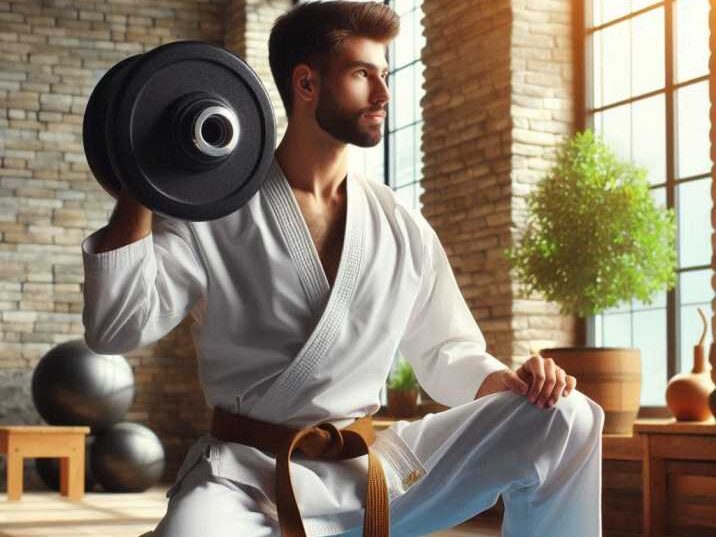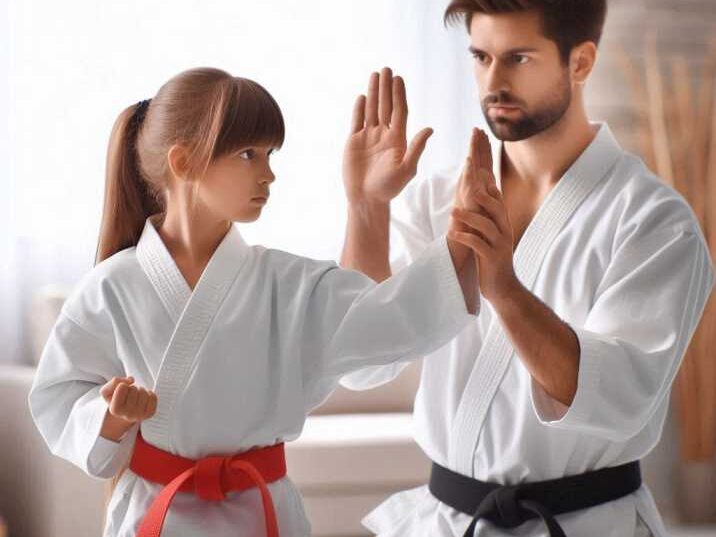Introduction
Table of Contents
Have you ever thought about starting karate but wondered if it’s too late to begin in your 20s? The good news is that it’s never too late to start karate, no matter your age! Karate, a traditional Japanese martial art, offers numerous benefits for adults. Whether you’re looking for a new hobby, a way to get fit, or even a path to self-improvement, karate can be a great choice. In this article, we’ll explore the advantages of starting karate in your 20s, provide helpful tips for beginners, and answer some common questions.

Why Karate in Your 20s?
1. Health and Fitness Benefits
Karate is an excellent way to improve your physical health and fitness. In your 20s, you might be busy with work or studies, making it hard to find time for exercise. Karate offers a fun and effective workout that combines cardio, strength training, and flexibility exercises.
- Cardiovascular Health: Karate helps improve heart health by increasing your heart rate and endurance.
- Strength Building: Practicing karate enhances muscle strength and endurance.
- Flexibility: Regular training improves your flexibility and range of motion.
2. Stress Relief and Mental Clarity
Life in your 20s can be stressful with various responsibilities. Karate can be a great stress reliever and help you achieve mental clarity. The discipline and focus required in karate practice can lead to better stress management and mental well-being.
- Stress Reduction: Physical activity and martial arts training help reduce stress levels.
- Mental Focus: Karate improves concentration and mental resilience.
- Emotional Balance: Regular practice promotes emotional stability and self-control.
3. Personal Development and Confidence
Starting karate in your 20s can be a powerful tool for personal development. It helps build confidence, self-discipline, and perseverance.
- Self-Confidence: Achieving goals in karate boosts self-esteem.
- Discipline: The structured nature of karate instills discipline and commitment.
- Perseverance: Overcoming challenges in karate training develops persistence.
4. Social Interaction and Community
Joining a karate class introduces you to a new community of people with similar interests. It’s a great way to make friends and connect with others.
- Networking: Karate classes often include diverse groups, allowing you to meet new people.
- Support System: Being part of a karate community provides encouragement and motivation.
- Cultural Exposure: Learning about karate’s history and culture broadens your horizons.
5. Self-Defense Skills
Karate is not just about physical fitness; it also teaches valuable self-defense skills. Learning karate can increase your safety and self-reliance.
- Personal Safety: Karate techniques can help you protect yourself in dangerous situations.
- Self-Defense Training: Skills learned in karate are practical for real-life self-defense.
- Confidence in Safety: Knowing self-defense techniques boosts confidence in your personal safety.
How to Get Started with Karate
1. Find a Reputable Dojo
Choosing the right dojo (karate school) is crucial for your training. Look for a dojo with qualified instructors and a positive environment.
- Research Dojos: Check reviews and visit local dojos to find the best fit.
- Instructor Qualifications: Ensure instructors are experienced and certified.
- Class Environment: Look for a dojo with a supportive and respectful atmosphere.
2. Start with Basic Training
As a beginner, focus on mastering basic techniques and forms. This foundation is essential for progressing in karate.
- Basic Techniques: Learn fundamental moves such as punches, kicks, and blocks.
- Forms (Kata): Practice traditional forms to develop technique and coordination.
- Regular Practice: Consistent training helps build skill and confidence.

3. Set Realistic Goals
Setting goals can help you stay motivated and track your progress. Start with small, achievable goals and gradually challenge yourself.
- Short-Term Goals: Focus on learning basic techniques and improving your fitness.
- Long-Term Goals: Aim for belt promotions and advanced techniques.
- Tracking Progress: Keep a training journal to monitor your achievements.
4. Maintain a Balanced Diet and Lifestyle
A healthy lifestyle supports your karate training and overall well-being.
- Nutrition: Eat a balanced diet to fuel your workouts and recovery.
- Hydration: Stay hydrated to maintain energy levels and performance.
- Rest: Allow time for rest and recovery to prevent injuries and improve performance.
5. Embrace the Journey
Karate is a lifelong journey of learning and growth. Embrace the process and enjoy the benefits of your hard work.
- Patience: Progress takes time, so be patient with yourself.
- Enjoyment: Find joy in the practice and celebrate your achievements.
- Continuous Learning: Stay open to new techniques and experiences.
Table of Information
| Topic | Details |
|---|---|
| Benefits of Karate | Health, stress relief, personal development, social interaction, self-defense |
| Starting Tips | Find a reputable dojo, start with basics, set goals, maintain a healthy lifestyle, embrace the journey |
| Equipment Needed | Karate gi, protective gear |
| Training Frequency | 2-3 times per week |
Conclusion
Starting karate in your 20s is a fantastic decision with numerous benefits. From improving your health and fitness to boosting your confidence and social connections, karate offers valuable advantages for adults. With the right mindset and dedication, you can make the most of your karate journey and enjoy the many rewards it brings. So, why wait? Take the first step towards your karate adventure today!
FAQs
1. Is it too late to start karate in my 20s?
No, it’s never too late to start karate. Many people begin training in their 20s and beyond, enjoying great benefits.
2. How long does it take to become skilled in karate?
Skill development varies, but with regular practice, you can start seeing progress in a few months.
3. Do I need any special equipment to start karate?
Initially, you may need a karate uniform (gi) and protective gear. Your dojo will provide specific requirements.
4. Can karate help with weight loss?
Yes, karate provides a great workout that can aid in weight loss when combined with a balanced diet.
5. How often should I train to see results?
Training 2-3 times a week is typically effective for beginners. Consistency is key to seeing progress.


